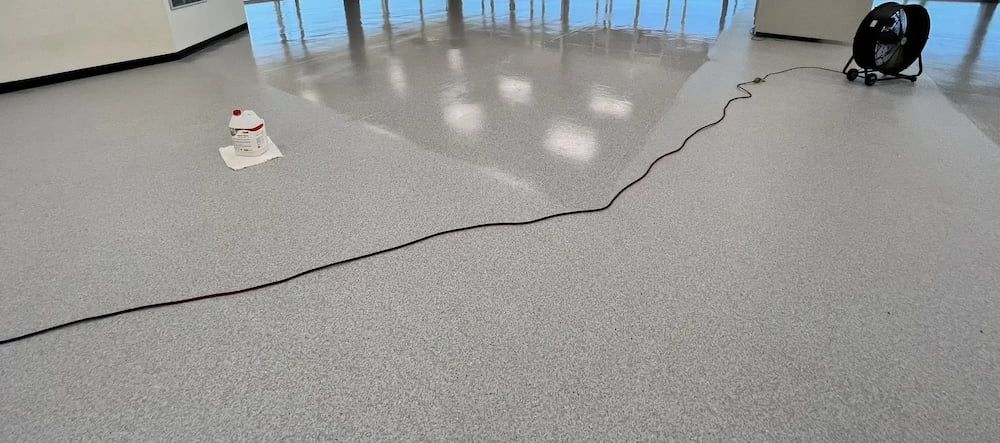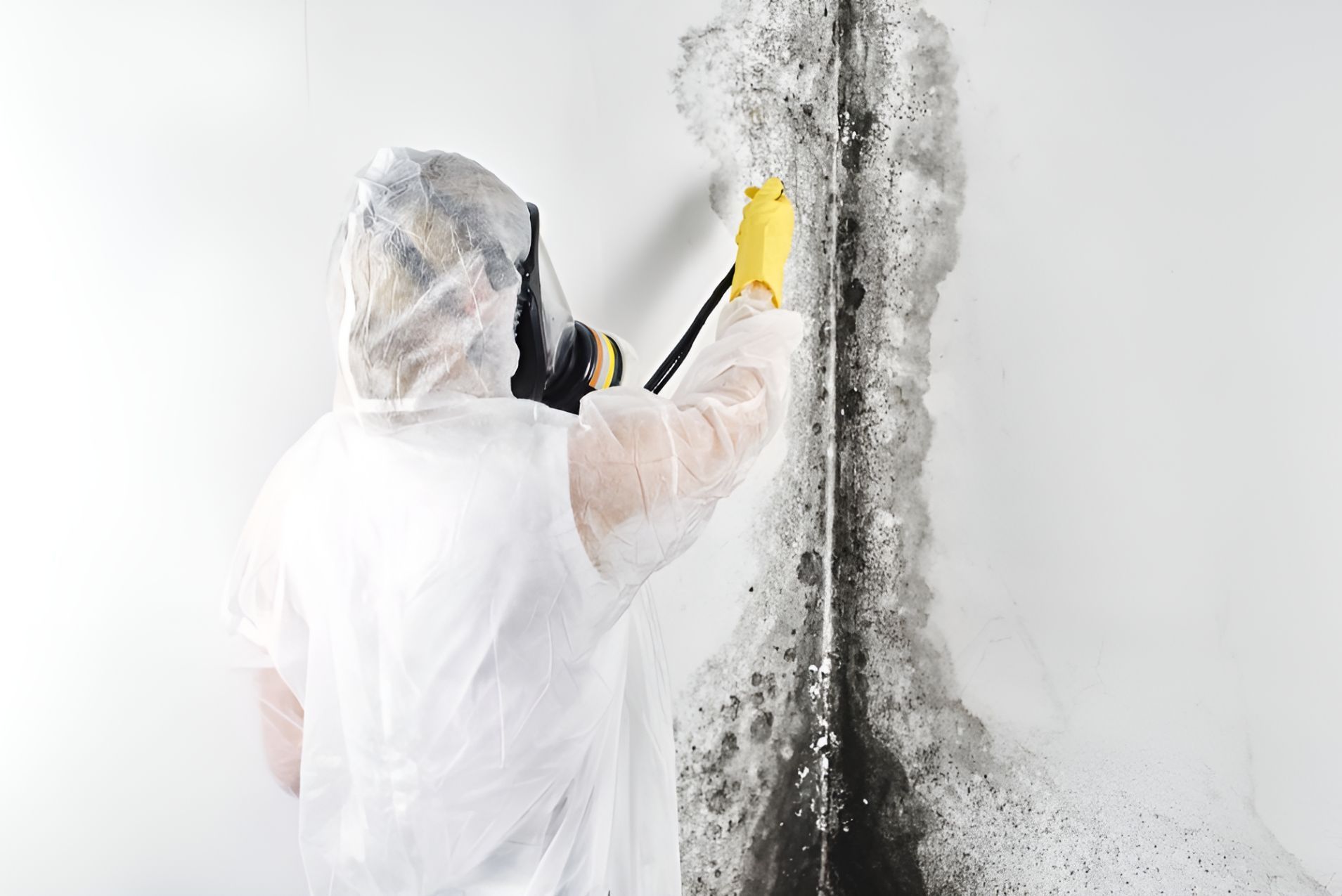How Cleaners in Darwin Handle Mould and Humidity in Tropical Conditions

Darwin’s tropical climate is beautiful—but it also brings unique challenges for anyone managing a commercial property. With high humidity, seasonal rainfall and consistently warm temperatures, mould and moisture problems can appear almost anywhere. Left untreated, they affect not only the appearance of a building but also the health and comfort of the people who use it.
So how do professional
cleaners tackle these challenges? In this Q&A, we look at the most common questions business owners ask about mould, humidity and cleaning in the Top End, with practical insights into how Darwin cleaners approach the problem.
Why is mould such a big issue in Darwin’s tropical climate?
Mould thrives where two conditions exist: moisture and warmth. Darwin has both in abundance. During the wet season, humidity levels often sit above 80%, creating the perfect environment for mould spores to spread. Even in the dry season, daytime heat combined with air-conditioned interiors can cause condensation, leading to localised moisture problems.
For commercial buildings, the risk is magnified because there are more people, more air-conditioning systems and more areas where moisture can collect. Once mould takes hold, it can spread quickly, staining surfaces, damaging materials and triggering health issues such as allergies or respiratory irritation.
What areas of commercial buildings are most vulnerable to mould and excess moisture?
Not every surface or room is equally at risk. Professional cleaners Darwin pay close attention to specific hotspots:
- Bathrooms and washrooms: Constant exposure to water makes tiles, grout and ceilings vulnerable.
- Air-conditioning units and ducts: Condensation can create hidden mould growth inside systems.
- Kitchens and food preparation areas: Steam and heat combine to create damp conditions.
- Storage rooms and basements: Poor airflow allows moisture to linger, even if water isn’t visible.
- Windows and glass doors: Condensation forms on cool surfaces, especially with AC running inside.
By identifying these high-risk areas, cleaners can implement proactive strategies before mould spreads further.
How do professional cleaners in Darwin deal with mould on a regular basis?
Tackling mould requires more than surface cleaning. Experienced teams use a combination of methods:
- Moisture control: Identifying and reducing sources of dampness, whether from leaks, condensation or poor ventilation.
- Specialised cleaning products: Using mould-specific treatments that remove stains and kill spores rather than just wiping them away.
- HEPA vacuuming and air cleaning: Capturing airborne spores to prevent recontamination.
- Preventive treatments: Applying anti-microbial coatings to vulnerable surfaces.
- Regular maintenance schedules: Keeping high-risk areas under ongoing observation.
This approach ensures mould isn’t just removed but is less likely to return.
Is humidity itself a cleaning challenge?
Absolutely. High humidity doesn’t just encourage mould—it also affects dust, odours and even how well cleaning products work. In Darwin’s climate:
- Dust binds with moisture, making it harder to remove and quicker to settle.
- Odours linger longer because dampness reduces natural air circulation.
- Surfaces can stay damp after cleaning, increasing the risk of streaking or residue.
Professional cleaners adapt by using dehumidifiers, scheduling cleaning when humidity is lower, and applying quick-dry methods that minimise lingering dampness.
How often should commercial spaces in Darwin be professionally cleaned?
The answer depends on the type of business. In general:
- High-traffic offices and retail: Daily or several times a week to control moisture and hygiene.
- Hospitality and food services: Daily deep cleaning, with special attention to kitchens and bathrooms.
- Warehouses and industrial sites: Weekly or fortnightly, focusing on ventilation and dust control.
What makes Darwin unique is that even lower-traffic buildings need regular checks for mould. A space left unattended for a few weeks in the wet season can quickly develop issues.
Can regular cleaning prevent mould completely?
No cleaning method can eliminate mould risk entirely in a tropical climate, but regular maintenance dramatically reduces the chance of serious problems. By catching early signs—musty smells, discolouration, condensation—cleaners can act before mould becomes widespread.
Consistent schedules also allow businesses to maintain healthier indoor air quality, which is especially important for employees and clients who may be sensitive to allergens.
What role does air-conditioning play in mould control?
Air-conditioning is both a help and a hazard. On one hand, it reduces humidity indoors, making spaces less hospitable to mould. On the other, poorly maintained AC systems can become breeding grounds themselves.
Professional cleaners often work alongside HVAC technicians to:
- Clean vents and filters.
- Check drip trays and drains for standing water.
- Ensure airflow prevents condensation buildup.
This partnership is essential in commercial spaces where AC systems run daily.
Why should business owners work with professional cleaners instead of tackling mould themselves?
DIY cleaning may remove surface stains, but it rarely deals with the underlying problem. Without professional-grade products and techniques, mould tends to return quickly.
Professional cleaners offer:
- Trained expertise in spotting early warning signs.
- Access to specialist equipment such as HEPA vacuums and dehumidifiers.
- Knowledge of safe practices, ensuring spores aren’t spread further.
- Consistency, with ongoing schedules rather than one-off fixes.
For business owners, this translates into healthier work environments, reduced property damage and lower long-term costs.
What’s the cost of ignoring mould in a commercial building?
Beyond the obvious cosmetic issues, ignoring mould leads to:
- Health complaints from staff or customers, potentially causing liability issues.
- Damage to materials like plaster, carpet and insulation.
- Reduced property value, as visible mould is a red flag in inspections.
- Higher repair bills when problems eventually demand structural remediation.
Compared to these risks, investing in professional commercial cleaning Darwin services is far more cost-effective.
Final Thoughts
Darwin’s tropical climate brings challenges that businesses elsewhere in Australia don’t always face. Mould and humidity are constant concerns, and once they take hold, they’re difficult to control without professional help.
With the right expertise, however, these challenges don’t have to disrupt your workplace. Experienced cleaners in Darwin use proven techniques to manage moisture, reduce mould risk and keep air quality healthy.
If you’re looking for reliable support, Regina’s Cleaning Group offers tailored solutions for commercial cleaning in Darwin, helping businesses stay ahead of the unique conditions the Top End presents.





